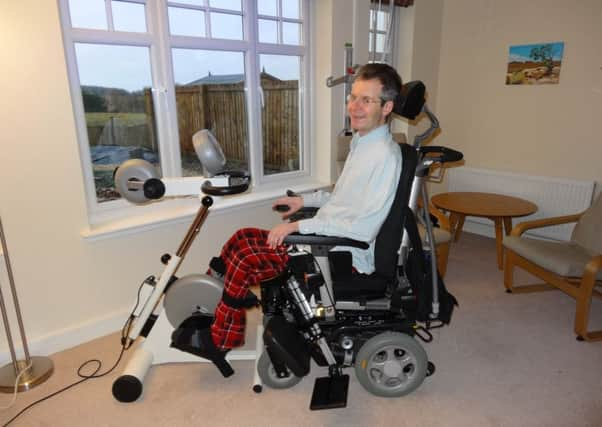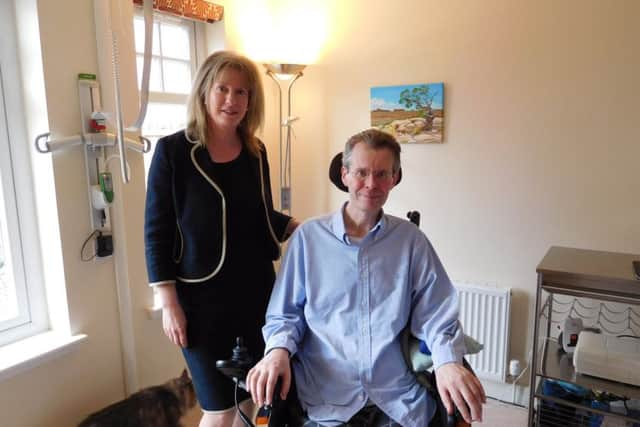MND Scotland Manifesto for People with MND


This Manifesto has been produced for the Holyrood 2016 Scottish Parliamentary elections, by MND Scotland in consultation with people affected by MND across Scotland.
MND Scotland are calling on all political parties to support the Manifesto. Already more than 50 MPs and MSPs from all parties have signed a pledge to support MND Scotland’s Manifesto. The key areas covered in the Manifesto are:
- Prioritise research into MND


- Ensure the needs of those affected by MND are met now
- Support carers
- Alleviate the financial burden of MND
Advertisement
Hide AdAdvertisement
Hide AdIn a further development, at the end of February 2016 NICE published its long awaited Guidelines on MND. The guidelines, published by NICE, aim to improve and standardise care for people who have MND.


Currently these guidelines only apply in England, Wales and Northern Ireland.
Typical symptoms of MND include muscle weakness, wasting, cramps, problems with speech and swallowing, and breathing problems. Most people with MND die within 2 years of developing symptoms, but only 5 per cent are alive at 10 years. With constant improvements in technology and availability of equipment the long term survival percentage is only going to increase.
Since there is no cure for MND, the aim of care for the disease is to maintain ability to function and enable those with MND and their family members to live as full a life as possible.
Currently, in the UK care for MND varies and is a postcode lottery. While many MND care centres and networks provide coordinated multidisciplinary care, some people with MND are left isolated and their care is less than ideal.
The NICE guidelines include recommendations that cover the care of people with MND from diagnosis until preparation for end of life care to help improve and standardise assessment and management of the disease.
If NHS Scotland were to adopt these new guidelines this would significantly improve both care and equipment provision for MND patients across Scotland. The particular areas which have been enhanced in the guidelines are guidance around care requirements, family carer support, Non-Invasive Ventilation (NIV), cognitive support, physiotherapy and dietary advice.
Sally Light, Chief Executive of the Motor Neurone Disease Association (“MNDA”) which covers England, Wales and Northern Ireland, said: “The MNDA strongly welcomes the publication of the NICE guidelines on MND. This long awaited guideline has come about after more than four years of campaigning by the Association and our supporters.
Advertisement
Hide AdAdvertisement
Hide Ad“It is a hugely significant document that sets out in detail what good care looks like and how it should be delivered. It will shape future care and have a huge influence over the quality of life for people living with MND and their families and carers. We look forward to working with our members and supporters to ensure the NICE guideline on MND has a positive impact on the care and support available to people with MND, their families and carers.”
If NHS Scotland adopts these NICE Guidelines, together with the combined resources of MND Scotland and The Euan McDonald Centre, Scotland would be well placed to demonstrate to the rest of the world what can be achieved in the management of MND, as well as playing our part in the search for a cure.
Calum Ferguson is a MND campaigner who lives in Dunblane. To support him please visit: https://www.justgiving.com/Calum-Ferguson1/ or through JustTextGiving by texting CALC51 £5 to 70070.